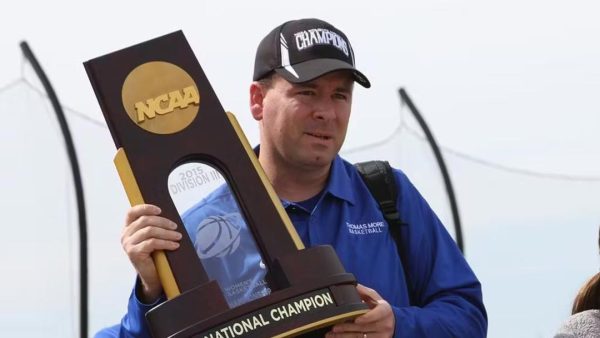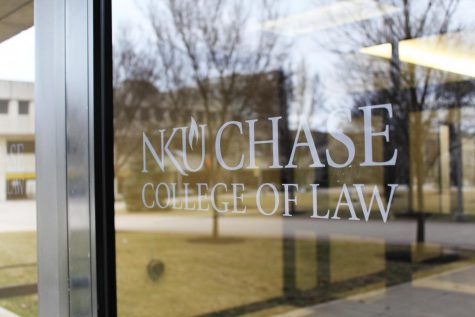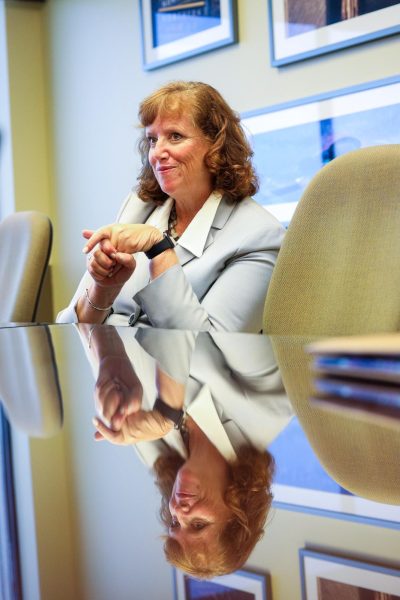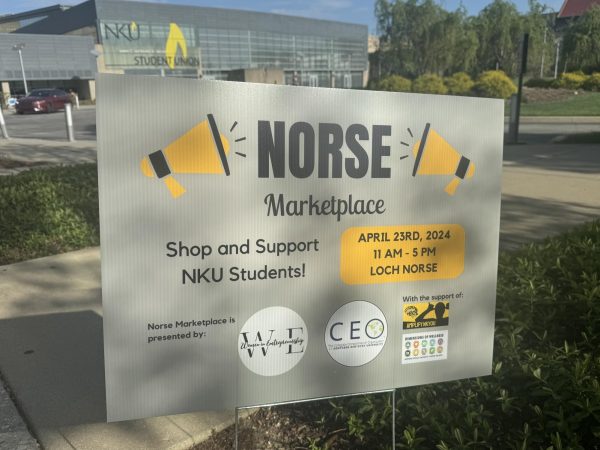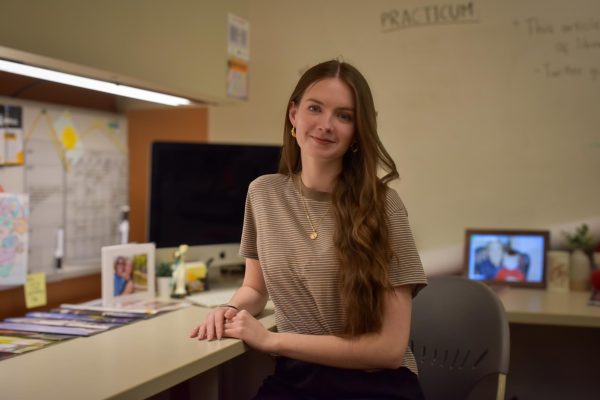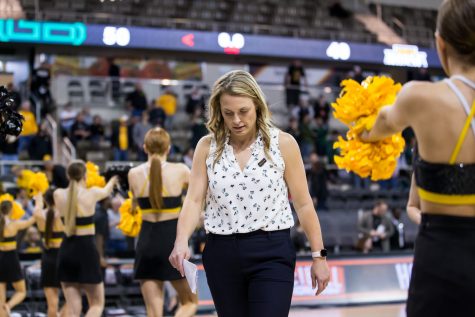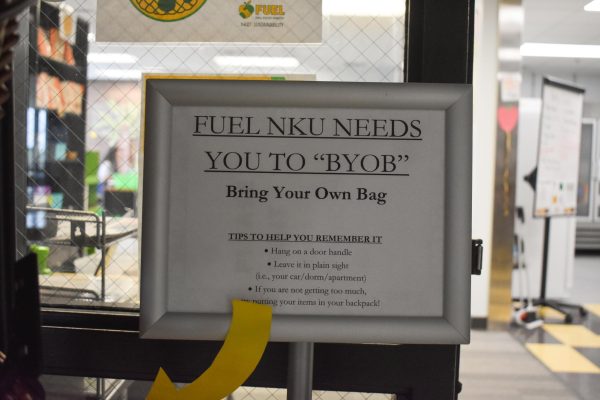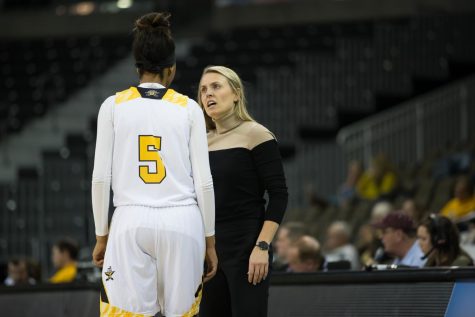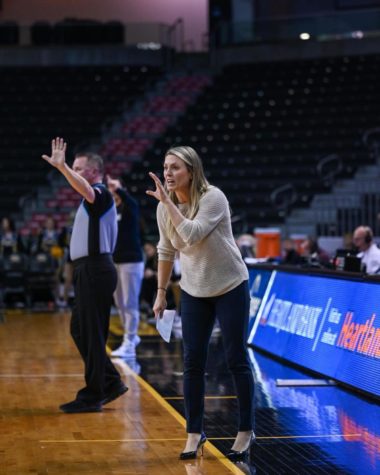Priest fights inequity in and out of classroom
Whether with a plastic fireman’s helmet or a pretend doctor’s bag, many children enjoy acting out their dream jobs. From an early age, NKU professor Debra Meyers was doing the same—just not with a rubber stethoscope. Meyers was acting out her own dream job: she wanted to become a priest.
Raised as a Catholic from childhood, Meyers became aware of the impossibility of her wish at a young age.
“I knew I was called to be a priest, but an adult once told me, ‘You can’t do that, and it’s really sinful behavior for you to be pretending to be a priest. Think about being a mom, or a nurse,’” recounted Meyers. “So I set that aside for a while, although I knew I was being called to the priesthood. It’s only later in life that things fell into place to allow me to do that.”
Meyers has a Ph.D. in history and women’s studies and a master’s degree in religious studies. She began teaching at NKU in 2001, and currently teaches women’s studies and history.
The potential inclusion of women in the Catholic priesthood is raising controversy in the Catholic Church and the world at large. On NKU’s campus, Meyers has advocated for equality through both action and words.
The controversy over women in the priesthood has existed since medieval times. As the Catholic doctrine holds, the New Testament priesthood stems from Jesus Christ himself, and all men who have become priests or bishops participate in Christ’s priesthood. This participation is known as “acting in Christi Capitis,” or in the person of Christ, according to the Catechism of the Catholic Church.
Joseph Bermingham, president of the NKU Catholic Newman club, said church regulations and policies come up frequently in club discussions.
“It’s something we do every Thursday with a theological topic or a church teaching topic,” Bermingham said. Discussion of the ordination of women, he said, is on the agenda for future discussion.
Some who believe that women should be allowed into the priesthood hold that gender
is irrelevant as long as an individual is willing and able to “act in the person of Christ”.
Meyers was ordained in May of 2013 as the first female Catholic priest in the Cincinnati area and the second in the state of Kentucky. Though the ordination — and other ordinations like it — are opposed and not officially recognized by the Vatican, those in favor of female ordination within the church are fighting for change. Even though they are not recognized by the Roman Catholic Church, they are recognized by the Association of Roman Catholic Women Priests.
Though her interest in both religious studies and gender inequity have been long-standing, Meyers began her higher education with a different goal in mind. After graduating high school, she attended a community college and earned a degree in mechanical engineering. She worked in the field for several years before the birth of her children, after which she went back to school and earned a bachelor’s degree in history, initially planning to teach at the high school level. She went on instead to earn a Ph.D in the field.
“I landed a position at Ohio State—or, the Ohio State, as they insisted we call it, but I wasn’t really happy about the emphasis on sports and that kind of thing,” Meyers said. “When the job opened up here I jumped at the chance.”
Meyers said working in an environment in which feminism was discussed, contributed to her current focus on inequity within the Catholic Church and the world at large. She described her ministry as “inclusive” and particularly concerned with social justice regarding women and children.
“I came from a family that was on the border of poverty and I know how hard it is for people to struggle to get out of that,” Meyers said.
She said these experiences influenced her current goals centered on social justice for women and children in particular.
“I know how important education is in that process of breaking out of that cycle of poverty,” Meyers said. “I have always spent much of my time helping women to do those kinds of things.”
Meyers recently led a lecture and discussion entitled “Breaking the Holy Glass Ceiling”, one of the Democracy Square Live discussions with the help of Roy Bourgeois, a laicized—or withdrawn from his position— Roman Catholic priest.
In addition to her job at NKU, she serves as a priest at the Resurrection Community of
Cincinnati. She celebrates the Catholic mass at two main locations, Christ Church in Fort
Thomas and Our Lady of Peace in Cincinnati.
Meyers said community reaction to her ordination has been overwhelmingly positive. She described her first experience as a priest celebrating mass as both “natural” in feeling and an act she felt sure would serve the community well.
“It certainly wasn’t terrifying,” Meyers said. “Mostly because I’ve been preparing for this my whole life….I feel I am where I’m meant to be.”


